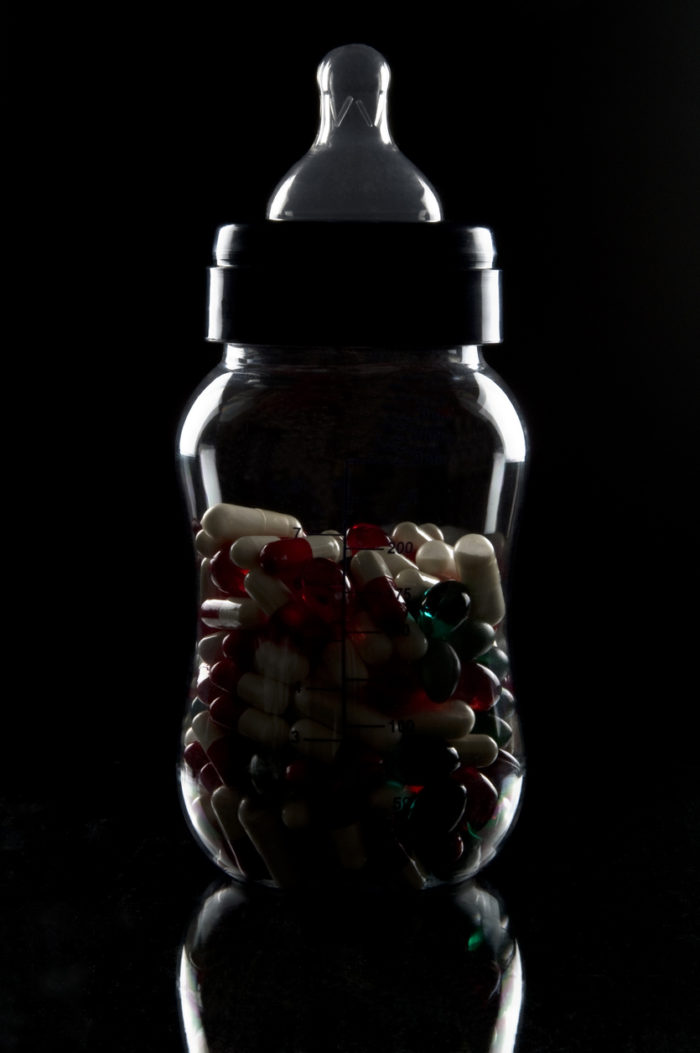Opioid Epidemic Causing Collateral Damage to America’s Babies
CDC Says 6 out of 1,000 Newborns Suffer from Drug Withdrawal
Drug-addicted mothers passing along the egregious effects of opioid use to their children has increased on such a large scale that the Centers for Disease Control and Prevention has given it a name: neonatal abstinence syndrome.
Neonatal abstinence syndrome, or NAS, has spiked 300 percent in 28 states, according to the CDC. That figure is expected to rise when the remaining states add their statistics to the study, meaning the six out of 1,000 babies born in the United States with the condition could nearly double.
An excerpt from a CDC report titled “Incidence of Neonatal Abstinence Syndrome – 28 States, 1999–2013” sets forth:
“The findings in this report are subject to at least four limitations. First, the State Inpatient Databases include de-identified administrative data, and counts of NAS cases are based on information collected at the delivery hospitalization. In this analysis, only cases at the originating hospitals were counted. Cases identified as transfers from another hospital were not counted, to minimize possible duplication of counts and overreporting of infants with NAS who might need a higher level of care. However, these rates are likely underestimates, as hospital administrative data identify fewer cases of NAS than does clinical reporting. Second, these estimates are not generalizable to births that occur outside of the hospital; however, out-of-hospital deliveries represented only 1.5% of births in 2014. Third, although statistically significant annual changes in incidence rates were observed, these changes might not represent large increases in actual numbers of affected infants, depending on the birth population in each state. Finally, data are not generalizable to the entire United States, but only to the 28 states included in this report.”
The news is mostly bad, but is there a chance it might not be as bad as it could be? The real answer is eluding those who are asking the question.
“How do you fix a problem if you don’t know its size?” an NPR article titled “A Crisis With Scant Data: States Move To Count Drug-Dependent Babies” reads. “Many states – including some that have been hardest hit by the opioid crisis – don’t know how many of their youngest residents each year are born physically dependent on those drugs. They rely on estimates.”
Pennsylvania is an example. From 2013 to 2014, about 3,700 babies born to Medicaid recipients had NAS, and over 30 died before they reached their first birthday. It is worth noting that each baby’s stay in the NICU before overcoming the symptoms of NAS can last up to one month, costing a minimum of $10,000, not counting follow-up appointments.
“Pediatricians say that if the right agencies get real-time information, the babies are likely to get better care, and it’s more likely that hidden roots of the epidemic can be identified and addressed,” the NPR article reads. “To make good decisions, health officials need basic information: Which infants are affected? How many, where, and why?”
The hidden roots of the epidemic grew out of the pharmaceutical industry’s greed. “Big Pharma” misinformed healthcare providers and the public about the addictive properties of its painkillers. Prescription opioids have become go-to pills for those experiencing back injuries, knee replacements, injuries from automobile accidents or any other cause of debilitating discomfort.
“The report comes as the nation is grappling with a massive opioid epidemic tied to the use of medications like the prescription painkillers oxycodone and hydrocodone, as well as the illegal narcotic heroin,” states a U.S. News & World Report article titled “America’s Opioid Epidemic Is Increasingly Harming Babies.” “Women who use these highly addictive drugs during pregnancy can pass them on to their developing fetus, making them drug-dependent.”
Symptoms of NAS impact the central nervous system and include feeding difficulties, gastrointestinal dysfunction, seizures, sweats, tremors and vomiting and result in bouts of screaming and crying.
“When you see those babies scream, you see them claw, you see them shake, it makes the problem real,” Barry Staubus, district attorney general for Sullivan County in Tennessee, told NBC News in an article titled “Born Addicted: The Number of Opioid-Addicted Babies Is Soaring.” “It’s not an abstract policy problem. It’s not a lawsuit. It’s a baby that never had a chance.”
But in Eastern Tennessee, it is a lawsuit – eight – filed by district attorneys general in and around the Sullivan County area – an area that sees instances of NAS in 50 out of 1,000 babies – against drug makers and drug distributors.
“Tennessee is currently the only state in the country that equates substance abuse while pregnant with aggravated assault, punishable by a 15-year prison sentence,” reports Behavioral Health of the Palm Beaches. “Eighteen other states consider it to be child abuse, and three say it’s grounds for civil commitment. Four states require drug testing of mothers and 18 require that healthcare professionals report when drug abuse is suspected. There are also 19 states that have created funding for targeted drug treatment programs for pregnant women.”
The agency attributes the statistics to the Guttmacher Institute, which states in its report that the problem of substance abuse by pregnant women has been debated since the 1980s.
“Prosecutors have attempted to rely on a host of criminal laws already on the books to attack prenatal substance use,” according to the report. “The Supreme Courts in Alabama and South Carolina have upheld convictions ruling that a woman’s substance use in pregnancy constitutes criminal child abuse. Meanwhile, several states have expanded their civil child-welfare requirements to include prenatal substance use, so that prenatal drug exposure can provide grounds for terminating parental rights because of child abuse or neglect.”
Share This



